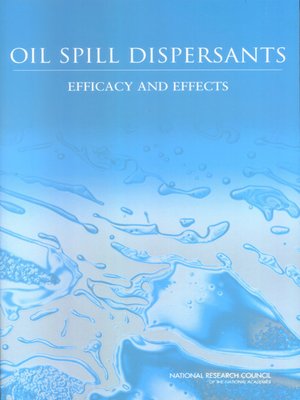
Sign up to save your library
With an OverDrive account, you can save your favorite libraries for at-a-glance information about availability. Find out more about OverDrive accounts.
Find this title in Libby, the library reading app by OverDrive.



Search for a digital library with this title
Title found at these libraries:
| Loading... |
<p>Approximately 3 million gallons of oil or refined petroleum products are spilled into U.S. waters every year. Oil dispersants (chemical agents such as surfactants, solvents, and other compounds) are used to reduce the effect of oil spills by changing the chemical and physical properties of the oil. By enhancing the amount of oil that physically mixes into the water, dispersants can reduce the potential that a surface slick will contaminate shoreline habitats. Although called for in the Oil Pollution Act of 1990 as a tool for minimizing the impact of oil spills, the use of chemical dispersants has long been controversial. This book reviews the adequacy of existing information and ongoing research regarding the effectiveness of dispersants as an oil spill response technique, as well as the effect of dispersed oil on marine and coastal ecosystems. <i>Oil Spill Dispersants</i> also includes recommended steps for policy makers faced with making hard choices regarding the use of dispersants as part of spill contingency planning efforts or during actual spills.</p>






